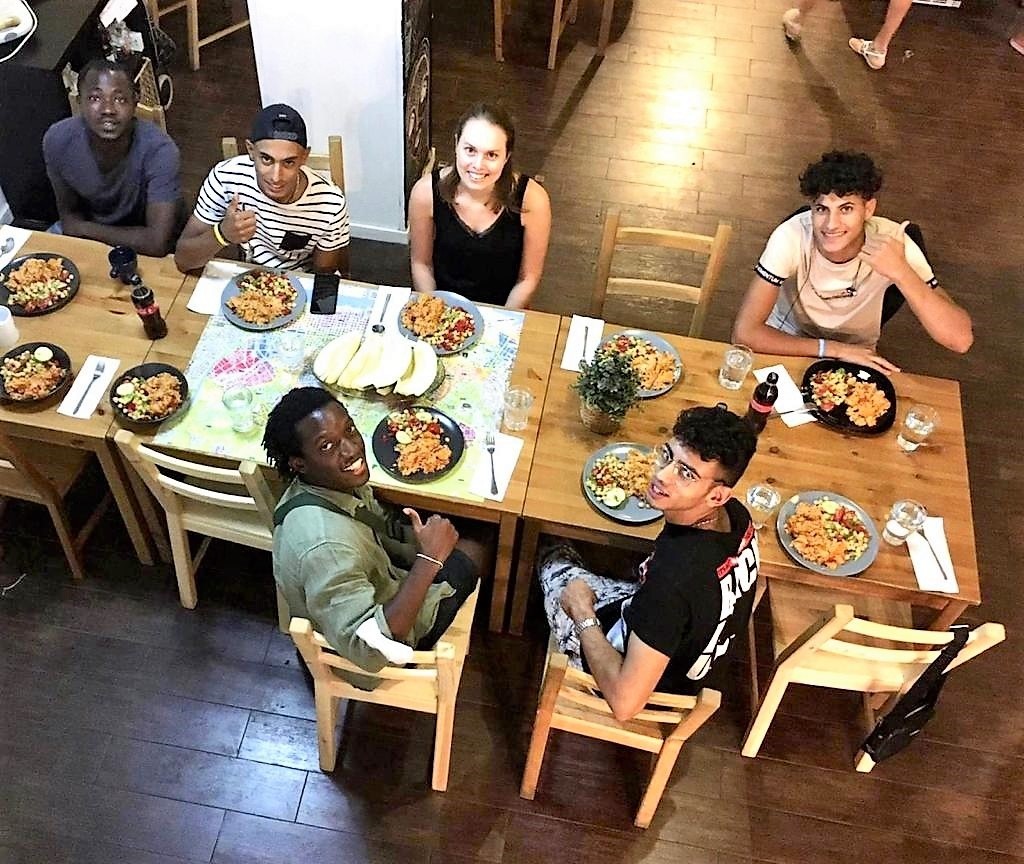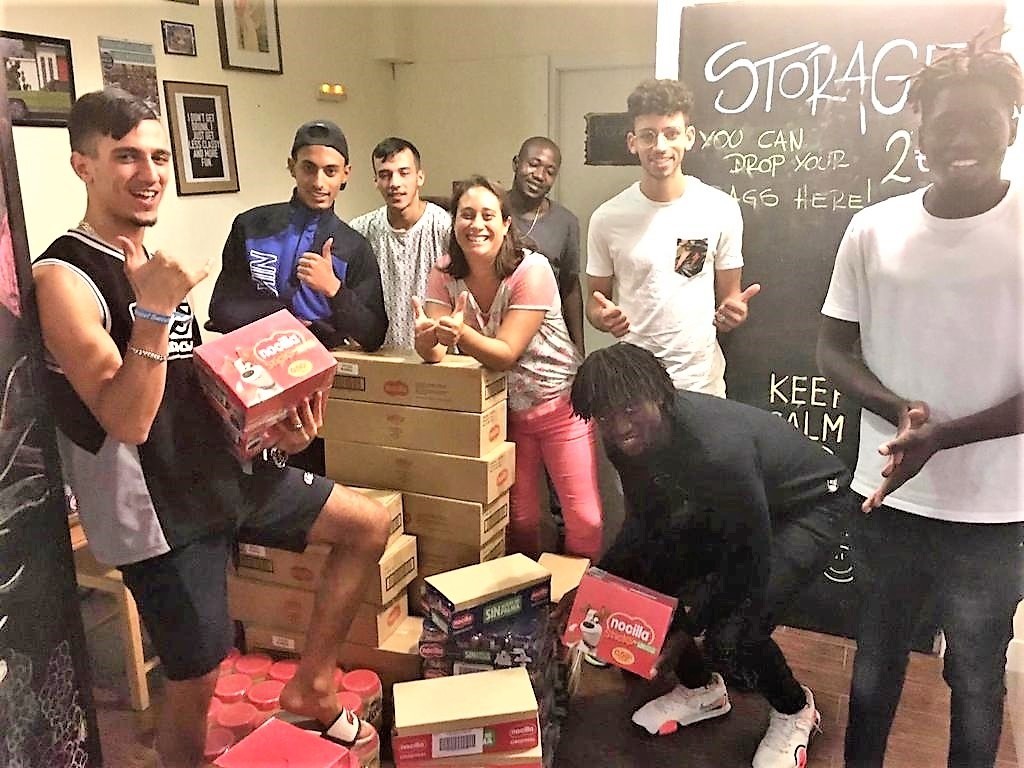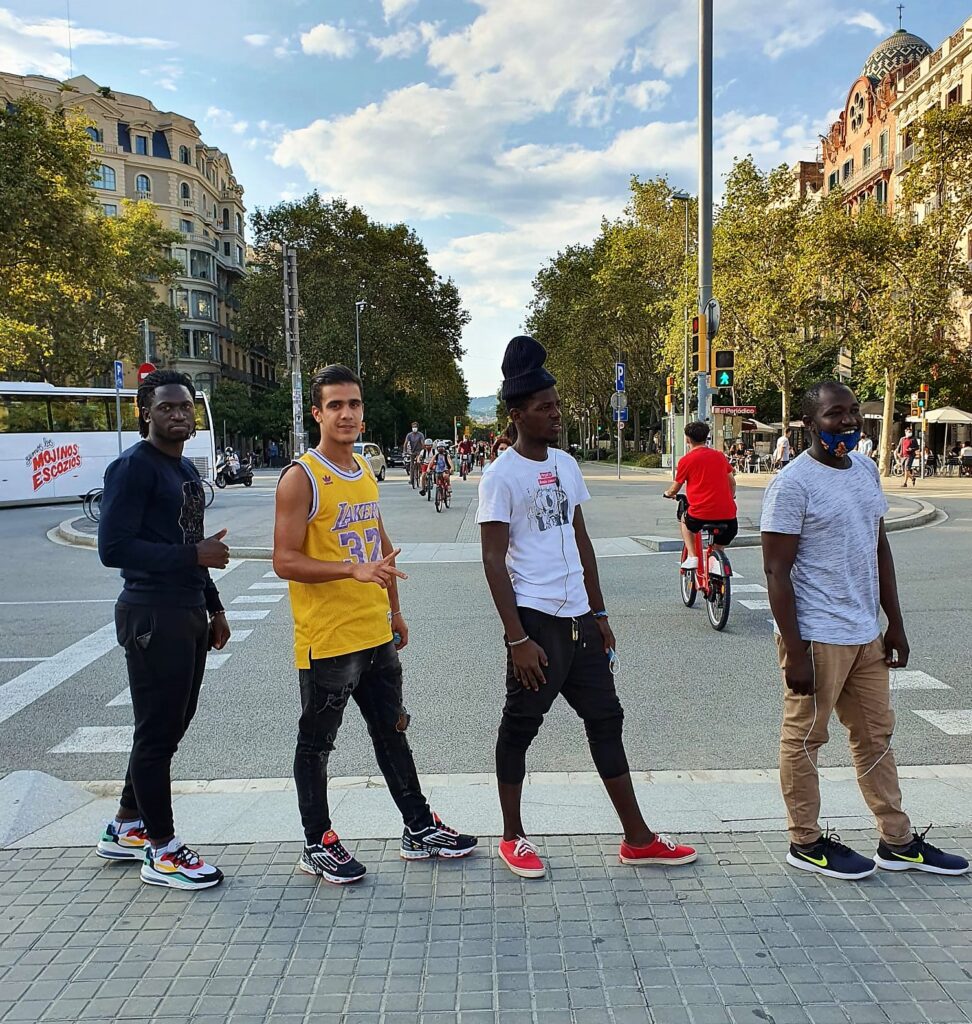SPAIN. Barcelona. We can go far if we work together. Civil society, NGOs, private entities, and the public administration make possible an innovative refugee inclusion program in Barcelona’s city center. The first steps of this project affecting neighbors and refugees took place in July as covered by Transcontinental Times. Since then, local NGO Fundación BarcelonActua’s work has found support in the city’s town hall. Thus, in September they opened a second refugee hostel, BACstation Arc de Triomf, where they have accommodated thirty people as of this week. We interview Laia Serrano, founder and CEO of Fundación BarcelonActua, and Aida Guillén, director of Citizen’s Rights in Barcelona’s town hall, to explain the benefits of this program.
COVID-19 social crisis is adversely affecting immigrants and refugees in particular
While Madrid segregates its citizens in an ineffective attempt to reduce the COVID-19 curve, Barcelona builds inclusive spaces in the city center for refugees. COVID-19 effects are harsh everywhere and we are all affected. But the social and economical problems brought to our attention during the pandemic are not new ones. What can be new though, is how we deal with them. Here lies the challenge, here lies the opportunity for fundamental change. Fundación BarcelonActua’s inclusive model and the town hall’s policies are not just mending a situation in the short term. They are working to build sustainable solutions for the future as well.

The Attention Service to Immigrants, Emigrants, and Refugees, known in Barcelona as SAIER, works in the city since 1989. In the first semester of 2020, the service dealt with fewer requests than it had in 2019, due to the national lockdown and the subsequent border closing. But the number of asylum seekers requesting help has risen, from 36% of the total in 2018 to 48% in 2020. According to Barcelona’s town hall, the sanitary crisis is affecting the immigrant and refugee collectives in particular. “There is a problem in Barcelona, and in many other European cities, of homelessness, we don’t talk enough about” adds Laia Serrano.
COVID-19 limited access to lodging for immigrants who were already waiting up to nine months to have a bed. “Most of the people who could have normally found a place to stay (in municipal hostels or families) were left out,” says Aida Guillén. The situation is particularly alarming for just turned eighteen-year-olds who have lost the state guardianship and are left paperless, without inclusion support, and alone on the streets.
Barcelona’s town hall response to COVID-19 social crisis
Aida Guillén reminds that “the state pays for a limited number of beds” for refugees, immigrants and the homeless. Several local NGOs, concerned by this lack of resources and the increase in their demand, find family hosting for very diverse profiles. In the last years, Barcelona’s town hall has been collaborating with entities such as Refugees Welcome, Fundació MigraStudium, Punt de Referència, Bayt-al-thaqafa and ACATHI to help implement family reception policies.
In July Barcelona destined €35 million to palliate COVID-19 adverse effects. A month later, they separated €18 million of the whole package to cover the basic needs of those most vulnerable, reaching almost 34.000 people. They also enlarged reception infrastructure for the homeless and invested in local NGOs such as Fundación BarcelonActua. Aida Guillén states that “the crisis brings new collaborations, these are new contexts the pandemic has opened.”

How long-term collaboration produces win win situations for everyone involved
Fundación BarcelonActua manages a community of over 5000 volunteers in the city. They work giving support, language classes, and work and study formations for those recently arrived. They started working on lodging due to COVID-19, soon they launched the first BACstation. The project grows with every implementation. A work in progress the local administration actively supports.
BACStations unique approach
Laia Serrano underlines two innovative aspects of BACstation. The first is the continuous presence of volunteers. The second is the hostels being located in the city center. The latter is a rather unique consequence of COVID-19. Hostels, located in vibrant neighborhoods, closed and were losing money. Refugee shelters tend to be on the city’s outskirts. The proximity to a city’s real daily life is one of the project’s most valuable aspects. Also, proximity facilitates the presence of volunteers all day.
Read also: Hostel Turned Into Refugee Shelter
Volunteers, previous students in Fundación BarcelonActua in some cases, help guests in their cleaning, cooking, and daily activities. Volunteers also impart language classes and formations. A psychologist offers Monday to Friday courses on emotional intelligence. “There is a sense of community where we all learn from each other. The people in the program and the volunteers and the locals. This helps tremendously in their integration process. It is an opportunity for these young people and for us, we can be enriched as well by their huge human capital” says Laia Serrano. The constant interaction with neighbors and volunteers represent, according to Aida Guillén “the seeds for future processes.”
A long term solution
When the administration works with local NGOs, a community’s real necessities are addressed. This also facilitates solving the issue in its entirety and allows for time continuity. For example, if an immigrant or asylum seeker loses state support, their inclusion program could continue in the BACstations, avoiding disruption.

“Hostels should be temporary,” says Aida Guillén. According to Laia Serrano, “it would be ideal if we could keep the project going and people in the hostels to rotate. Once a person completes their stay in one of the BACstations we’ll find them a hosting family.”
“Family hosting is a success model, implemented in different countries in Europe, it implies a normalized entry into a new country’s life. The inclusion within a family is the trampoline for developing a citizen’s life.” Aida Guillén concludes.
Barcelona’s town hall is not only financially supporting BACstation Arc de Triomf. It is ensuring continuity and sustainability thanks to a well-established network of local entities. Real opportunities arise from the most unexpected circumstances. This inclusion model creates benefits for everyone involved. It also helps tearing down the wall of fear. What best way to respect and love your neighbor than by getting to know them.

